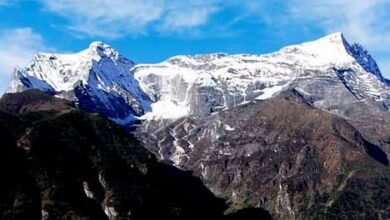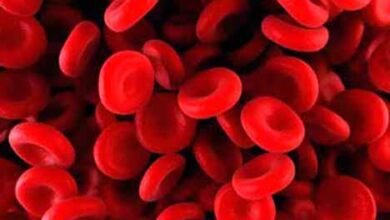
अर्थशास्त्र से संबंधित-72
| 1. What are the names of the means of economics? = Consumption, production, exchange, distribution, and revenue.
2. When was MODVAT introduced in India? = The Year 1986. 3. The largest nationalized bank in India is? = Central Bank of India. 4. State Bank of India was established on the recommendation of which committee? = Gorewala Committee. 5. How is the economy of India? = Mixed Economy. 6. Who collects and publishes unemployment data in India? = National Sample Survey Organization (NSSO). 7. Who first estimated the national income in India? = Dadabhai Naoroji. 8. On the basis of whose survey the Planning Commission assesses the people below the poverty line? =National Sample Survey Organization (NSSO). 9. The policy which the central bank of the country implements through quantitative and qualitative instruments is called what? = Monetary Policy. 10. What is the basis of economic growth? = Production. 11. What is demand? = When a need is presented by price, time, and place, it is called demand. 12. Which index has been considered as the basis for estimating poverty in rural areas? = Consumer Price Index of Agricultural Laborers. 13. What are the major causes of structural unemployment? = Insufficient Production Capacity. 14. Who is considered the forerunner of the liberalization of the Indian economy? = Dr. Manmohan Singh. 15. Who is the Narasimham Committee related to? = Banking Reforms. 16. Who was the founder of ‘The Sarvodaya Yojana’? = Jai Prakash Narayan. 17. The term ‘Bull and Bear’ is related to? = Stock Market. 18. The words ‘Tejadiya’ and ‘Mandiya’ are related to? = Stock Market. 19. Who calculates the national income in India? = Central Statistical Organization. 20. How is the level of poverty in India assessed? = Basis of consumption expenditure of the family. 21. What basis are the sectors in the economy classified into public and private? = Basis of Ownership of Enterprises. 22. What is the main source of national income in India? = Agriculture. 23. When was the VAT tax implemented in India? = 01 April 2005. 24. What type of tax is ‘VAT’? = Indirect Tax. 25. What is Kutir Jyoti Yojana? = To provide free electricity facilities to the family living below the poverty line in rural areas. 26. What is the objective of the Antodaya program? = Helping the poorest of the poor. 27. What is meant by a closed economy? = Import-Export off. 28. What is meant by the mixed economy? = Co-existence of the public and private sectors. 29. What is the decrease in the quantity of money called? = Contraction of currency. 30. What is meant by devaluation? = Decrease in the external value of currency i.e., in exchange for one currency unit, less foreign currency is received than before. ========= ========== =========== 1. अर्थशास्त्र के साधनों के नाम क्या है? = उपभोग, उत्पादन, विनिमय, वितरण और राजस्व. 2. भारत में मोड़वैट(MODVAT) का प्रारंभ कब किया गया था? = वर्ष 1986. 3. भारत का सबसे बड़ा राष्ट्रियकृत बैंक है? = सेंट्रल बैंक आँफ इंडिया. 4. भारतीय स्टेट बैंक की स्थापना किस समिति की सिफारिश पर हुई थी? = गोरेवाला समिति. 5. भारत की अर्थव्यवस्था कैसी है? = मिश्रित अर्थव्यवस्था. 6. भारत में बेरोजगारी के आंकड़े कौन एकत्रित व प्रकाशित करता है? = राष्ट्रीय नमूना सर्वेक्षण संगठन (एनएसएसओ). 7. भारत में सर्वप्रथम राष्ट्रीय आय का अनुमान किसने लगाया था? = दादाभाई नौरोजी. 8. योजना आयोग किसके सर्वेक्षण के आधार पर गरीबी की रेखा से नीचे के लोगों का आकलन करती है? =राष्ट्रीय नमुना सर्वेक्षण संगठन (एनएसएसओ). 9. जिस नीति को देश का केंद्रीय बैंक परिणात्मक व गुणात्मक उपकरणों के माध्यम से लागू करता है, उसे क्या कहा जाता हैं? = मौद्रिक नीति. 10. आर्थिक वृद्धि का आधार क्या होता है? = उत्पादन. 11. माँग क्या है? = जब किसी आवश्यकता को कीमत, समय और स्थान से प्रस्तुत किया जाता है उसे माँग कहते है. 12. ग्रामीण क्षेत्रों में गरीबी के आकलन के लिए किस सूचकांक को आधार माना गया है? = कृषि श्रमिकों का उपभोक्त मूल्य सूचकांक. 13. संरचनात्मक बेरोजगारी के प्रमुख कारण क्या है? = अपर्याप्त उत्पादन क्षमता. 14. भारतीय अर्थव्यवस्था के उदारीकरण का अग्रदूत किसे माना जाता है? = डॉ० मनमोहन सिंह. 15. नरसिंहम समिति का संबंध किससे है? = बैंकिंग सुधार. 16. ‘सर्वोदय योजना’ के संस्थापक कौन थे? = जय प्रकाश नारायण. 17. ‘बुल एंड बीयर’ शब्द किससे संबंधित होता है? = शेयर बाजार. 18. ‘तेजडि़या’ व ‘मंदडि़या’ शब्द किससे संबंधित होता है? = शेयर बाजार. 19. भारत में राष्ट्रीय आय की गणना कौन करता है? = केंद्रीय सांख्यिकीय संगठन. 20. भारत में निर्धनता के स्तर का आकलन कैसे किया जाता है? = परिवार के उपभोग व्यय के आधार. 21. अर्थव्यवस्था में क्षेत्रों को सार्वजनिक और निजी में किस आधार पर वर्गीकृत किया जाता है? = उद्यमों के स्वामित्व के आधार. 22. भारत में राष्ट्रीय आय का मुख्य स्त्रोत क्या है? = कृषि. 23. भारत में वैट कर कब लागू हुआ? = 01 अप्रैल, 2005. 24. ‘वैट’ किस प्रकार का कर होता है? =अप्रत्यक्ष कर. 25. कुटीर ज्योति योजना क्या है? = ग्रामीण क्षेत्रों में गरीबी की रेखा के नीचे जीवन यापन करने वाले परिवार को निःशुल्क विद्युत सुविधा देना. 26. अंतोदय कार्यक्रम का उद्देश्य क्या है? = गरीबों में से अधिक गरीब की मदद करना. 27. बंद अर्थव्यवस्था का अर्थ होता है? = आयत-निर्यात बंद. 28. मिश्रित अर्थव्यवस्था का अर्थ होता है? = सार्वजनिक व निजी क्षेत्र का साथ–साथ होना. 29. मुद्रा की मात्रा में कमी क्या कहलाती है? = मुद्रा का संकुचन. 30. अवमूल्यन का अर्थ होता है? = मुद्रा का बाहरी मूल्य कम होना अर्थात एक मुद्रा इकार्इ के बदले में विदेश की पहले से कम मुद्रा का प्राप्त होना.
|





